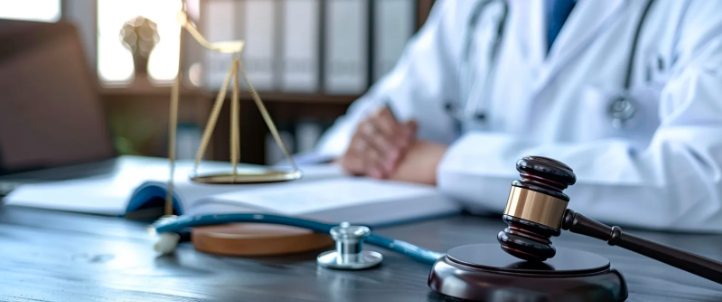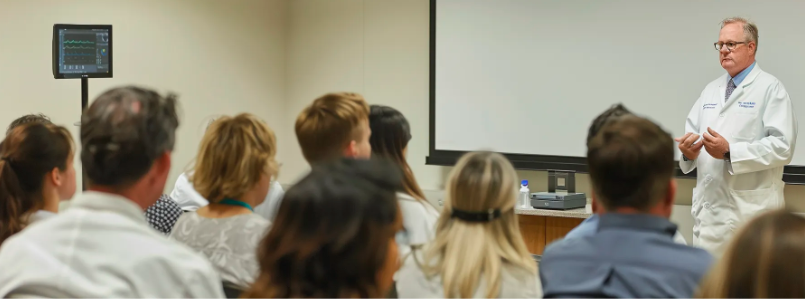Experiencing medical negligence can be a deeply traumatic and unsettling encounter. It involves a breach of the duty of care expected from healthcare professionals, ranging from misdiagnosis to surgical errors.
This article provides critical guidance on the steps to take if you find yourself in such an unfortunate situation. Arm yourself with the knowledge to navigate the aftermath effectively; below, you’ll find invaluable insights to support your journey towards justice and recovery.
Contents
Understanding Medical Negligence and Its Impact on Patients
Medical negligence occurs when healthcare providers fail to deliver the standard of care that a competent professional would reasonably offer, resulting in harm to the patient. This breach can manifest in various forms, including incorrect treatments, delayed diagnosis, or surgical errors. It is often a shocking revelation for patients who place immense trust in medical professionals to safeguard their health.
The impact on patients can range from minor complications to severe, life-altering consequences or even fatality. Physical pain, emotional trauma, and financial strain from additional medical costs or lost wages are common repercussions. It’s imperative that victims of medical negligence understand their situation, recognize the signs, and know the rights they possess under the law.
Part of understanding medical negligence involves knowing when to take action. Not every medical procedure with an unfavorable outcome is classified as negligence. It is negligence when the level of care has fallen below an accepted standard and directly causes harm or suffering to the patient. Dissecting the nuances can be intricate, making professional advice essential.
Familiarizing oneself with the concept of duty of care and the breach thereof is crucial. It builds the foundation for a potential medical negligence claims process. Patients must know that such experiences are not isolated events, and legal frameworks are in place to support their quest for compensation and justice.
Gathering Evidence and Documenting Your Experience With Medical Negligence
Once you suspect negligence, it’s critical to start gathering evidence immediately. Documentation serves as the cornerstone of any legal claim. Patients should retain all medical records, correspondences, and a diary of events detailing the treatment received, including dates, names of healthcare providers, and conversations that took place.
Other forms of evidence include photographs of physical injuries and testimonies from family, friends, or caregivers who witnessed the health issues resulting from the negligence. Receipts for expenses incurred due to the negligence, such as prescriptions, travel costs for medical appointments, or corrective treatments, can also support your claim.
To bolster the documentation, it may be necessary to obtain a professional medical opinion. This involves having another healthcare provider review the care in question, validating whether the standard duty was breached, and connecting this breach directly to the harm suffered.
Seeking Legal Guidance From Medical Malpractice Attorneys

After gathering evidence, the next critical step is to seek legal counsel from experienced medical malpractice attorneys. They possess the specialized knowledge and expertise required to navigate the complexities of medical negligence cases. Lawyers can offer an initial consultation to discuss the merits of your claim and the likelihood of success.
A competent attorney will guide you through the claim process, ensuring that you understand each stage and what is expected of you. They’ll be adept at valuing your claim accurately, including compensation for physical and emotional distress, as well as any financial losses.
Legal representation is crucial in facing well-resourced defense teams, often deployed by medical institutions or insurance companies. Skilled attorneys will orchestrate the collection of expert testimonies, craft compelling arguments, and represent your best interests in negotiations or court proceedings if necessary.
Reporting the Incident to Medical Boards and Regulatory Agencies

In addition to legal action, it is important to report incidents of medical negligence to relevant medical boards and regulatory agencies. Doing so can instigate formal investigations into the healthcare provider’s conduct and may contribute to preventing future incidents.
Each state or country has its own boards and agencies that oversee medical practice standards and respond to complaints about medical negligence. Their procedures generally include a review of the healthcare professional’s actions to determine if there was a violation of medical regulations or standards of care.
Reporting also helps in the broader context, contributing to systemic changes in healthcare practices. These agencies often compile data on reported incidents to identify patterns that may indicate a need for improvements in the healthcare system.
Altogether, the journey after experiencing medical negligence can be complex and draining. It is imperative to be well-informed and proactive in each of the steps outlined above. Overall, with the right support and information, individuals can navigate the aftermath with confidence, securing the justice and healing they rightfully deserve.




